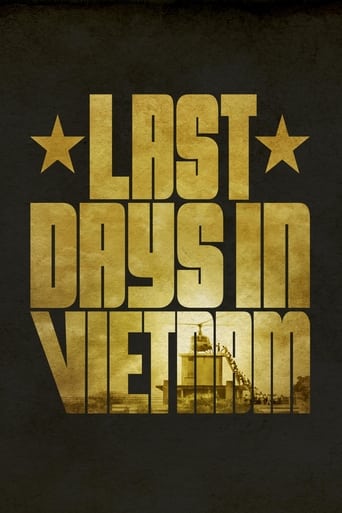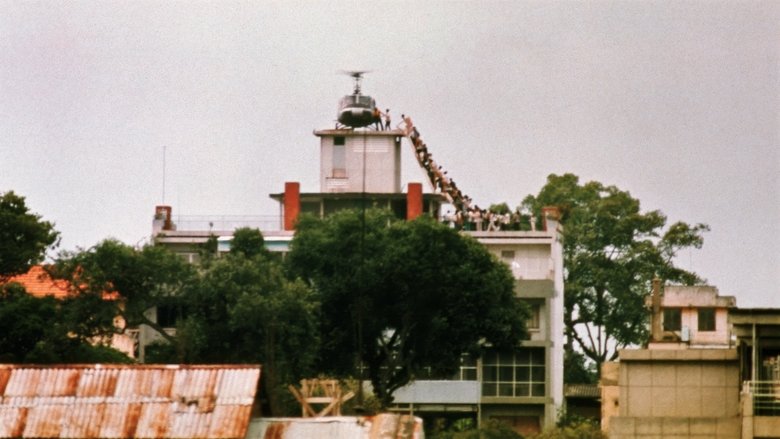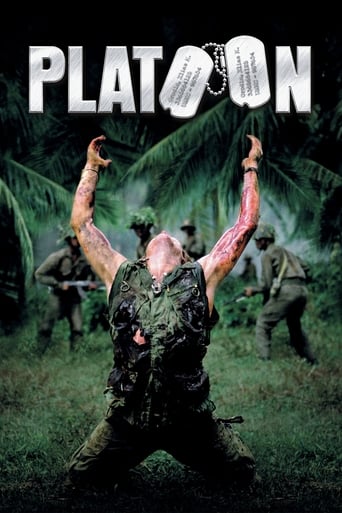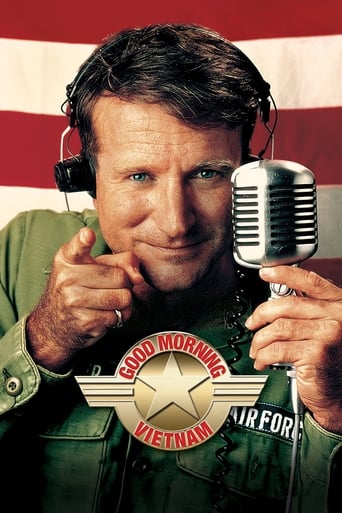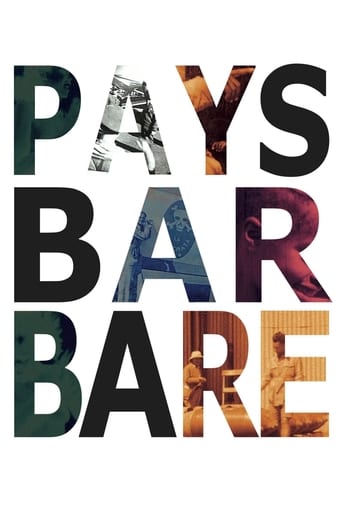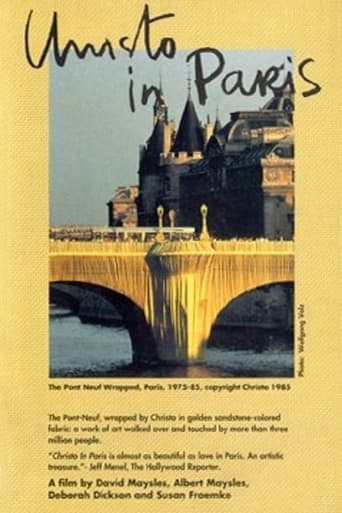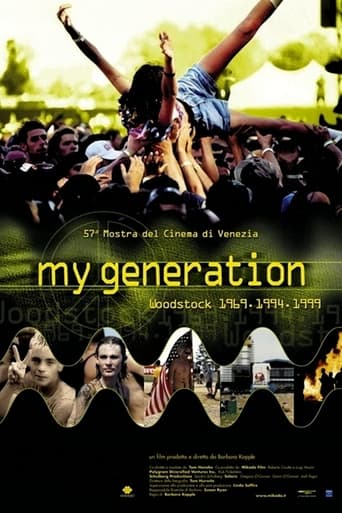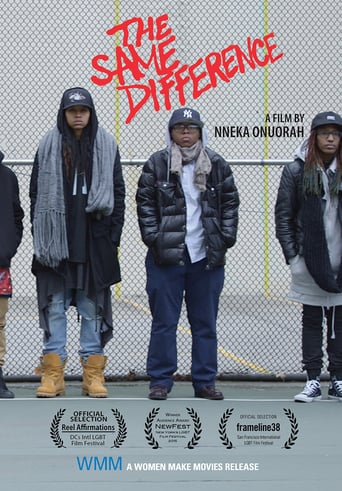Last Days in Vietnam (2014)
During the chaotic final weeks of the Vietnam War, the North Vietnamese Army closes in on Saigon as the panicked South Vietnamese people desperately attempt to escape. On the ground, American soldiers and diplomats confront a moral quandary: whether to obey White House orders to evacuate only U.S. citizens.
Watch Trailer
Cast


Similar titles
Reviews
When an occupying army gives up, and retreats, the immediate consequences are always going to be worst for those of the indigenous population who collaborated with the outgoing forces. For years, the United States helped keep South Vietnam independent from the north; once the U.S. troops had departed, re-unification was inevitable and eventually, the remaining Americans evacuated themselves, taking with them just some of the Vietnamese who had worked or fought for them and who now faced an uncertain future under a communist regime. Indeed, with the North VIetnamese forces on the edges of Saigon, the only way the evacuation could be staged was by helicopter, leading to extraordinary scenes all captured on film, and re-lived in this documentary. Having gotten in this mess, it's hard to see what the U.S. government could have done differently; with hindsight, of course, the whole story of U.S. involvement in Vietnam is a dreadful mistake. There's a vividness to the film clips, and to the recollections of those involved, which makes Rory Kennedy's film a particularly personal and intimate representation of the war as a whole. What doesn't need stressing is the totality of the defeat suffered by the U.S., an event that has arguably infused U.S. politics to this day.
In 1973, a peace agreement is signed in Paris to end the Vietnam war. In Aug. 1974, President Richard Nixon resigns. A few months later, the North launches a full scale invasion of the South. Americans are war wearied and help is not coming. The American ambassador refuses to accept defeatist talk. Some in the embassy organize a black ops smuggling out vulnerable Vietnamese. As the NVA closes in on Saigon, the Americans set off the secret evacuation plans with Bing Crosby's White Christmas.The iconic imagines from the evacuation are the helicopters taking off from the rooftop and the helicopters being pushed overboard. For most people, these are the collective memories. This documentary dives deeper into the story. Some of it is fascinating behind the scenes stuff. The last half is a bit repetitive as various harrowing stories do resemble each other.
This documentary gives us a lot of hand-wringing and conscience-searching about "doing the right thing" towards the thousands of southern Vietnamese who had collaborated with the American war effort. We are made to feel the gut-wrenching decisions made by Americans as to who would be evacuated and who would be left behind to face retaliation for their collaboration with the enemy. And, in the end, we are meant to feel re-assured that Americans are good people at heart, who "truly cared" about the fate of the inhabitants of southern Vietnam. But this story of the human tragedy that unfolded over a few days in late April 1975 is a deceptive snapshot of the big picture. Vietnam had been a united country for centuries before the defeat of the French in 1954 (France had occupied Vietnam as a colony of the French Empire since 1887). The Geneva Accords of 1954, which ended domination by the French, specified a temporary division of the country into a north and south--with the provision that elections would be held within 2 years to reunify the country. But Pres. Eisenhower admitted, "I have never talked or corresponded with a person knowledgeable in Indochinese affairs who did not agree that had elections been held as of the time of the fighting, a possible 80 per cent of the population would have voted for the communist Ho Chi Minh as their leader." And so the US and its puppet regime in the south saw to it that no elections were held. The so-called Republic of South Vietnam was a corrupt regime that had virtually no legitimacy, even in the south. It was comprised of elites drawn from the very small Catholic minority (6-8%), collaborationists with the previous French colonial regime, high-ranking military officers, wealthy landowners, and the businessmen, large and small, who had contractual dealings with the US. Its narrow base of support in the population meant that sooner or later the US would have to intervene militarily in a massive way in order to prop it up--which is what Pres. Johnson ordered, beginning in 1963. And so, for more than 10 years the US ravaged Vietnam to keep it from "going Communist". There are still people in the US who think we should have gone further in the carnage and devastation of that small country in order to "win the war" and "save Vietnam from the Communists"--though one wonders how many people would have been left to save and what would have been left of Vietnam as a habitable place if we had unleashed the full destructive force of the US military. As it was, nearly 3 million Vietnamese were killed, hundreds of thousands wounded and maimed for life, entire cities laid to waste, and a countryside left infested with toxic agents and land mines.Once the US discovered that the Vietnam War was destroying morale and discipline among its own troops (who, finding themselves surrounded on all sides by "the enemy", lashed out by committing scores of war crimes against the civilian population of Vietnam--see the My Lai massacre as an example), even the war hawks of the Nixon administration realized it was time for an "exit strategy". But shortly after the US pull-out, the morale of the army of the so-called Republic of South Vietnam dropped through the floor--and that should have come as no surprise since most of its soldiers had either been press-ganged into service or were there just to collect their paycheck. That army simply disintegrated in the face of Vietnamese who knew what they were fighting for: to liberate their country from a foreign invader.So now we can return to the meaning of those last days in April 1975. All of that hand-wringing and conscience-searching--a truly sincere desire on the part of Americans to "do the right thing" towards the Vietnamese whose lives we had compromised--falls terribly short of the mark. What is lacking is a recognition that we as Americans were responsible for that horror--and not just during the "last days in Vietnam". Both the director and the people she interviewed seemed oblivious to the fact that what happened in those last days was the playing-out of the final scene of more than 10 years of incalculable suffering and hardship we had inflicted on the people of Vietnam.
The most impressive aspect about Rory Kennedy's Last Days In Vietnam is the wealth of archive footage it has to offer. I marvel at the time investment she must have had to link every shot to a real life anecdote. As such, the documentary does a great job of making those stories come to life. But ultimately it's quite limited. I can see why the Academy liked it, moreso than Life Itself anyway, it's essentially similar to Argo where people are escaping volatile places. And like Argo it focuses on that moment of release rather than any context or consequence, besides the ending results. The film feels like a similar story over and over with little development, though they are interesting in their own right. It's got a very standard documentary approach with its interviews and the emotion, and while it's easy to empathise, it's rather basic rather than conflicted and complex. A good doc but a small missed opportunity for more insightful greatness.7/10

